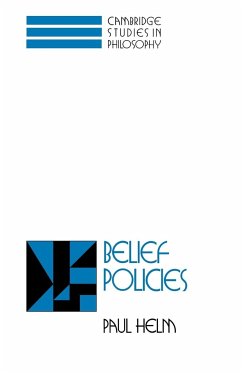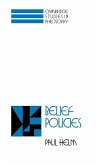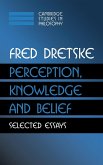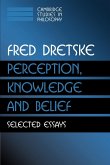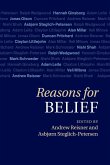How do we form and modify our beliefs about the world? It is widely accepted that what we believe is determined by evidence, and is therefore not directly under our control; but according to what criteria is the credibility of the evidence established? Professor Helm argues that no theory of knowledge is complete without standards for accepting and rejecting evidence as belief-worthy. These standards, or belief-policies, are not themselves determined by evidence, but determine what counts as credible evidence. Unlike single beliefs, belief-policies are directly subject to the will, and therefore to the possibility of weakness of will and self-deception. Helm sets out to interpret standard epistemological positions in terms of belief-policies, and to illustrate their operation in the history of philosophy. He establishes connections between belief-policies, responsibility for beliefs, and the desirability of toleration, before reassessing fideism in the light of his argument.
Hinweis: Dieser Artikel kann nur an eine deutsche Lieferadresse ausgeliefert werden.
Hinweis: Dieser Artikel kann nur an eine deutsche Lieferadresse ausgeliefert werden.

